Trauma Car Accident in Ontario, Canada
Getting Compensated for Trauma After a Car Accident in Ontario, Canada
Car accidents can be a traumatic experience that nobody ever expects or hopes to go through. Unfortunately, accidents do happen, and the aftermath can be difficult to navigate. Experiencing a car accident can have far-reaching effects on an individual’s physical, emotional, and psychological well-being. The outcome of a car accident can leave individuals dealing with various forms of trauma, impacting their daily lives and overall mental health.
In this webpage, we will explore important facts you need to know about trauma after a car accident in Ontario. It is important to be aware of the facts surrounding trauma after a car accident to better understand how to cope and seek help if needed.
Let’s explore it.

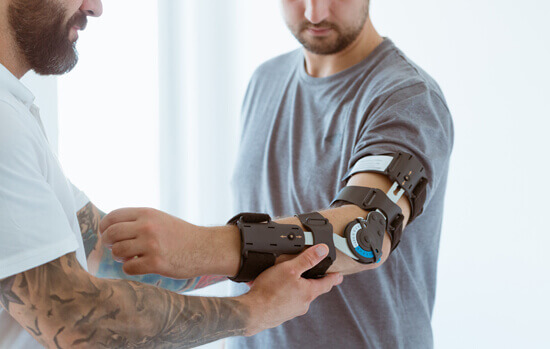
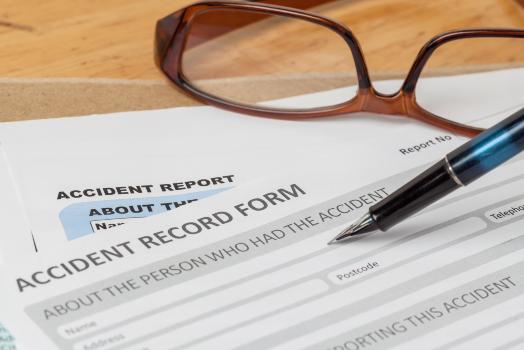
Trauma Car Accident in Ontario, Canada
The Risk of Trauma After a Car Accident in Ontario, Canada
Car accidents in Ontario can be traumatic and have far-reaching consequences beyond physical injuries. In Ontario, the risk of experiencing trauma after a car accident is a significant concern. Understanding the potential impact of trauma is crucial for individuals involved in accidents and their loved ones.
Here’s an exploration of the risk of mental trauma and its effects:
- Emotional Distress: Car accidents can trigger intense emotions, such as shock, fear, anxiety, and helplessness. An accident’s sudden and unexpected nature can leave individuals overwhelmed and emotionally distressed. These emotional reactions can persist long after the physical injuries have healed, affecting daily functioning and overall well-being.
- Post-Traumatic Stress Disorder (PTSD): Some individuals may develop Post-Traumatic Stress Disorder (PTSD) following a car accident. Symptoms can include intrusive memories or flashbacks of the accident, nightmares, avoidance of driving or car-related situations, hypervigilance, and heightened anxiety. PTSD can significantly impact one’s quality of life and may require professional intervention for effective management.
- Physical Injuries and Pain: Alongside the emotional impact, car accidents often result in physical injuries, ranging from minor cuts and bruises to severe damages such as fractures, spinal cord damage, or traumatic brain injuries. These physical injuries can cause chronic pain, limited mobility, and a need for ongoing medical treatment, potentially leading to additional emotional and psychological distress.
- Impact on Mental Health: Car accidents can exacerbate pre-existing mental health conditions or trigger the onset of new conditions. Depression, anxiety disorders, phobias (such as driving or being a passenger), and panic attacks are mental health issues that can arise or worsen following an accident. Prompt identification and treatment of these conditions are essential for comprehensive recovery.
- Disruption of Daily Life: Trauma resulting from car accidents can disrupt various aspects of a person’s life. This may include difficulties returning to work or daily activities, strained relationships with family and friends, financial burdens due to medical expenses and vehicle repairs, and a general sense of uncertainty about the future. Adjusting to the new normal after an accident can be a challenging process.
- Impact on Personal Relationships: Car accidents not only affect individuals directly involved but also have a ripple effect on their relationships. Loved ones may experience their own emotional distress and may need to provide support and understanding to the accident survivor. Open communication, empathy, and seeking professional help can assist in navigating these challenges.
- Fear of Driving: After a car accident, individuals may develop a fear of driving or experience significant anxiety when on the road. This fear can hinder daily activities, limit social engagement, and cause considerable distress. Gradual exposure therapy, supportive measures, and professional guidance can help individuals regain confidence and overcome this fear.
- Increased Risk of Future Accidents: Trauma from a car accident can lead to heightened anxiety and hypervigilance while driving. This state of heightened arousal may result in increased risk-taking behaviours, poor concentration, or excessive cautiousness, which can come up with a higher likelihood of future accidents if left unaddressed.
Understanding the risks associated with trauma after a car accident in Ontario is crucial for accident survivors, healthcare professionals, and support networks. Recognizing the potential impact can help promote early intervention, access to appropriate treatment, and the development of effective coping mechanisms. By addressing trauma comprehensively, individuals can work towards healing, recovery, and restoring their overall well-being.



Car Accident Trauma Symptoms in Ontario, Canada
Common Symptoms of Ptsd After a Car Accident in Ontario, Canada
Experiencing a car accident can be a traumatic event that can have a lasting impact on an individual’s mental and emotional well-being. Trauma can manifest in various ways, and recognizing the common symptoms is crucial for understanding and addressing the effects of the accident.
If you or someone you know has been involved in a car accident in Ontario, here are some common symptoms of trauma to be aware of:
- Intrusive Memories: Recurrent, distressing memories of the car accident may intrude upon the individual’s thoughts unexpectedly. These intrusive memories can manifest as distressing images, flashbacks, or vivid nightmares, causing significant distress and emotional disruption.
- Avoidance Behaviors: Those who have experienced trauma may actively avoid reminders of the car accident. This can include avoiding driving or being a passenger in a car, avoiding certain places or activities associated with the accident, or even avoiding conversations related to the incident.
- Hyperarousal: Those with car accident-related PTSD may experience heightened arousal or vigilance. This can manifest as increased irritability, difficulty concentrating, exaggerated startle response, hypervigilance, or a constant sense of being “on edge.” These symptoms can lead to persistent anxiety and interfere with daily functioning.
- Emotional Disturbances: Trauma can lead to significant emotional disturbances. They may experience intense and persistent fear, anxiety, or guilt related to the car accident. Mood swings, irritability, anger outbursts, and a general sense of emotional numbness or detachment may also be present. They may also have difficulty experiencing positive emotions or feel emotionally numb or disconnected from others.
- Sleep Disturbances: PTSD can disrupt sleep patterns, leading to difficulties falling asleep, staying asleep, or experiencing restful sleep. Nightmares related to the car accident can be recurrent, causing further sleep disturbances and contributing to overall emotional exhaustion.
- Physical Symptoms: Trauma can have physical manifestations as well. Individuals may experience symptoms such as headaches, digestive problems, muscle tension, or a general sense of physical discomfort. These symptoms may be directly related to the trauma or arise from the stress and anxiety associated with the accident.
- Social Withdrawal: Individuals who have experienced trauma may withdraw from social activities and isolate themselves from others. They may feel detached from their loved ones or have difficulty connecting with others due to the emotional impact of the accident.
- Cognitive Distortions: Trauma can affect an individual’s thoughts and beliefs. They may develop negative or distorted ideas about themselves, others, or the world around them. They may have difficulty trusting others or have a persistent sense of danger or impending doom.
- Impact on Daily Functioning: Trauma can significantly affect an individual’s daily functioning. They may have difficulty concentrating, making decisions, or completing tasks. Their work or academic performance may suffer, and they may struggle to maintain their usual responsibilities and routines.
It’s important to note that symptoms and their severity can vary from person to person. If you or someone you know is experiencing these symptoms after a car accident in Ontario, it is advisable to seek professional help from a mental health provider experienced in trauma therapy. They can provide a proper assessment and diagnosis and develop an appropriate treatment plan to address the individual’s needs.
Recovery from trauma is a process that takes time and support. With the right interventions and a strong support network, individuals can heal and regain control over their lives, moving forward on their path to recovery.


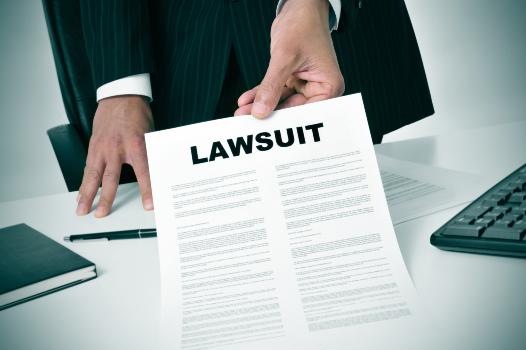
Car Accident Trauma Counselling in Ontario, Canada
How to Cope with Trauma After an Accident in Ontario, Canada
Experiencing a traumatic accident can profoundly impact your physical, emotional, and psychological well-being. Suppose you have recently been involved in an accident in Ontario and are struggling with trauma. In that case, it’s essential to prioritize your healing and take steps to cope with the aftermath.
Here are some strategies that can help you navigate the path to recovery:
- Recognize and Validate Your Emotions: It is normal to experience a wide range of emotions after a traumatic accident, including shock, fear, anger, sadness, or even guilt. Allow yourself to acknowledge and accept these emotions without judgment. Remind yourself that what you’re feeling is a natural response to a distressing event.
- Seek Medical Attention: After an accident, it’s crucial to prioritize your physical well-being. Even if your injuries seem minor, it’s still important to seek medical attention. Consult with healthcare professionals to assess and address any physical injuries, as well as to identify and manage potential underlying conditions such as whiplash or concussions.
- Reach Out for Emotional Support: Don’t hesitate to lean on your support network. Share your experience and emotions with trusted family members, friends, or a therapist. Expressing your feelings and concerns can provide a sense of relief and validation. If needed, consider joining a support group where you can connect with others who have gone through similar experiences.
- Practice Self-Care: Engaging in self-care activities can promote healing and well-being. Prioritize activities that nurture your physical, emotional, and mental health. This can include regular exercise, practicing relaxation techniques like deep breathing or meditation, maintaining a balanced diet, and getting sufficient sleep. Taking care of yourself can contribute to your overall resilience and recovery.
- Utilize Coping Mechanisms: Explore healthy coping mechanisms that work for you. This may involve journaling to express your thoughts and emotions, engaging in creative outlets like art or music, or participating in activities that bring you joy and relaxation. Find what helps you manage stress and positively channel your emotions.
- Educate Yourself on Trauma: Gaining knowledge about trauma and its effects can be empowering. Educate yourself through reliable sources, books, or websites dedicated to trauma recovery. Understanding the common symptoms, triggers, and coping strategies can help you make sense of your own experiences and develop effective ways to cope.
- Consider Support Groups: Joining a support group specifically for car accident survivors or trauma victims can be beneficial. These groups offer a safe space to share experiences, exchange coping strategies, and receive support from others who have undergone similar challenges. Local community centers, hospitals, or counselling centers may provide information on support groups in your area.
- Practice Mindfulness: Mindfulness techniques can assist in grounding yourself during distress. Focus on the present moment, engage your senses, and practice deep breathing exercises. Mindfulness can help reduce anxiety, promote relaxation, and enhance overall well-being.
- Be Patient with Yourself: Healing from trauma takes time and varies for each individual. Allow yourself the necessary time and space to heal and recover. Be patient with yourself, and don’t push yourself to overcome the trauma quickly. Set realistic expectations and celebrate even the smallest victories along the way.
- Explore Legal Options: If the accident was caused by someone else’s negligence, you may be entitled to compensation for your injuries and related damages. Consider consulting with a personal injury lawyer in Ontario to understand your legal rights, navigate the legal process, and seek appropriate recourse if necessary.
Remember, coping with trauma after an accident is a gradual process. By implementing these strategies, seeking support, and being kind to yourself, you can take significant steps towards healing and reclaiming your life after a traumatic event in Ontario.

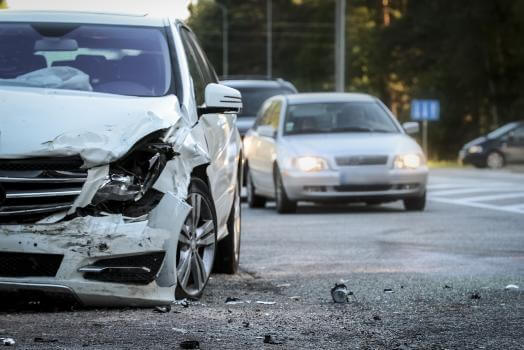

Emotional Trauma Car Accident in Ontario, Canada
Can I Sue for Mental & Emotional Distress After an Accident in Ontario, Canada
Suppose you have experienced mental or emotional distress due to an accident in Ontario. In that case, you may wonder if you have the legal right to sue for compensation. Mental distress refers to the psychological and emotional suffering that can arise from a traumatic event, such as a car accident.
While it is possible to seek damages for mental or emotional distress in certain circumstances, the laws surrounding this type of claim can be complex.
Here is some information to help you understand the potential for suing for mental or emotional distress after an accident in Ontario:
- No-Fault Insurance System: In Ontario, the auto insurance system operates under a “no-fault” principle, meaning that regardless of who is at fault for the accident, individuals involved can access benefits through their insurance provider. These benefits typically cover medical expenses, rehabilitation costs, and income replacement.
- Accident Benefits Coverage: Within the no-fault insurance system, accident benefits coverage does provide some compensation for psychological or emotional injuries resulting from an accident. These benefits, often called “catastrophic impairment” benefits, may include coverage for psychological counselling or therapy to address emotional distress.
- Demonstrating Psychological Injury: To succeed in a tort claim for emotional distress, you must provide evidence to establish that you have suffered a recognized psychological injury as a result of the accident. This typically requires medical documentation from qualified healthcare professionals, such as psychologists or psychiatrists, supporting your claim of emotional distress.
- Causation: It is crucial to establish a clear causal link between the accident and your emotional distress. You must demonstrate that the accident directly caused or significantly contributed to the development of your psychological injury. This can be challenging, as psychological injuries may have multiple contributing factors.
- Limitations and Time Constraints: It’s important to be aware that there are limitations and time constraints for pursuing a claim for emotional distress in Ontario. The specific time limit for filing a lawsuit varies depending on the circumstances and the type of claim being pursued. It is advisable to consult with a personal injury lawyer who can guide you through the legal process and ensure compliance with these timelines.
- Consult with a Personal Injury Lawyer: Given the complexity of emotional distress claims, it is advisable to seek legal suggestions from a personal injury counsellor who specializes in motor vehicle accidents and understands the laws and regulations in Ontario. Our recommended lawyers can assess the specifics of your case, advise you on the viability of a claim for emotional distress, and guide you through the legal proceedings.
The threshold for Tort Claims: In certain situations, if your injuries meet the legal threshold, you may be able to file a tort claim against the at-fault party for additional compensation, including damages for emotional distress. The threshold is met if the injuries meet the legal definition of “serious and permanent impairment of an important physical, mental, or psychological function.”
Remember, the ability to sue for emotional distress after an accident in Ontario depends on various factors, including the severity and effect of the emotional pain, meeting the legal threshold, and establishing causation. Seeking professional legal advice is crucial to determine the options available to you and to navigate the legal process effectively.

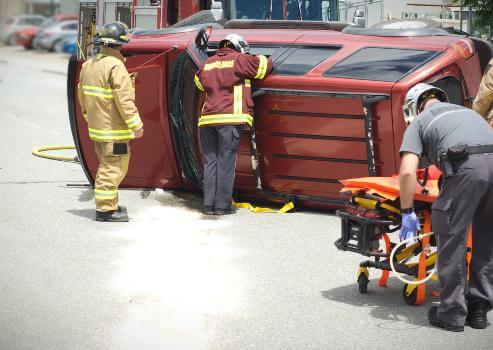

Car Accident Mental Trauma in Ontario, Canada
in Ontario, Canada
*The laws pertaining to automotive injuries are complex and are contsantly evolving. The information on this website was not written by legal professionals and should not be considered legal advise. Please contact a professional personal injury lawyer serving Ontario for the most up to date and accurate information.






